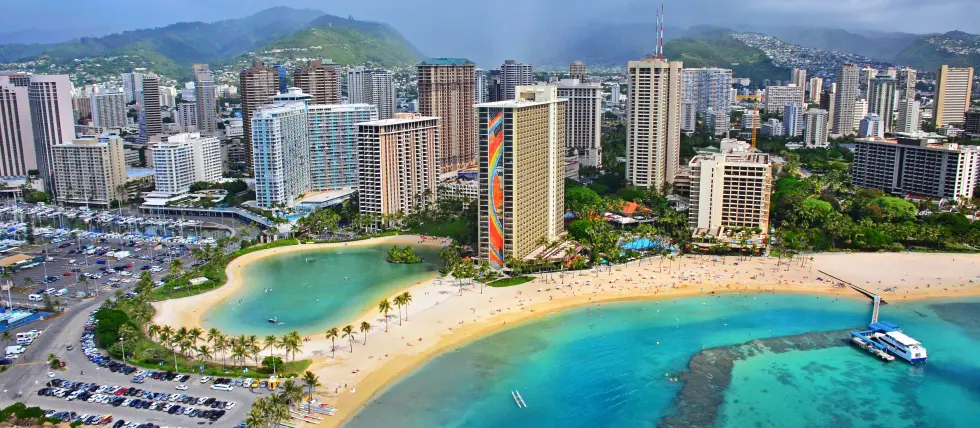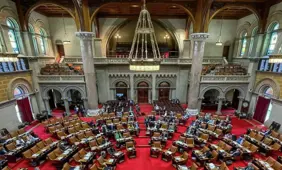Land-Based Casino Bill Surfaces in Hawaii
A bill proposing the establishment of land-based casinos in Hawaii has been introduced in the state legislature, aiming to bring regulated gambling to the islands. This coincided with a renewed attempt to legalize online gambling and sports betting in the state.

The legislation, SB 893 SD1, outlines provisions for granting twenty-year casino licenses for facilities to operate within the New Aloha Stadium Entertainment District and the Hawaii Convention Center. The bill also includes the creation of the Hawaii Gaming Control Commission, the implementation of a 15% wagering tax on gross gaming receipts, and the formation of a State Gaming Fund to manage gambling revenue. Additionally, a compulsive gambler program is planned to address potential gambling-related issues.
Related: New Online Sports Betting Bill Introduced in Hawaii SenateThe proposed bill would authorize limited casino gaming in designated areas, ensuring that gambling operations adhere to state regulations. Under the legislation, only casinos operating within the stipulated zones would be permitted to conduct gambling activities, and all licensees would be required to comply with the rules established by the newly formed gaming commission. The bill asserts that in case of any legal conflict with other laws regarding gambling, the provisions of this chapter will take precedence.
One of the key elements of the bill is the establishment of the Hawaii Gaming Control Commission (HGCC), a regulatory body tasked with overseeing all aspects of casino gaming in the state. The commission would be responsible for issuing casino licenses, regulating gaming operations, ensuring compliance with state laws, and enforcing penalties for violations.
The commission would consist of five members appointed by the governor, with two members selected from lists provided by the president of the senate and the speaker of the house. The commission members would serve staggered five-year terms and would be compensated for their service.
To ensure the integrity of the gaming industry, the bill mandates strict licensing requirements for applicants seeking to operate a casino. Potential licensees must undergo thorough background checks and provide detailed information regarding their financial stability, prior experience in gaming operations, and business practices.
The commission is authorized to deny applications from individuals or entities with past criminal convictions related to gambling or financial misconduct. Additionally, casino licenses could be revoked if licensees fail to commence operations within twelve months of approval or fail to comply with regulatory requirements.
The taxation structure outlined in the bill imposes a 15% wagering tax on gross gaming receipts generated by licensed casinos. The revenue collected from this tax would be allocated to the state general fund, with a portion directed toward funding public programs.
Specifically, 1% of the tax revenue would be allocated to a compulsive gamblers program and public security at casino facilities. An additional 1% would be earmarked to cover the administrative expenses of the gaming commission.
More Business News
Targeted Responsible Gambling
The bill further includes measures to address gambling addiction and responsible gaming practices. The HGCC would be responsible for implementing a compulsive gambler program to provide resources and assistance to individuals struggling with gambling-related issues. Additionally, casino licensees would be required to participate in responsible gaming initiatives and comply with regulations aimed at mitigating problem gambling.
Applications for casino licenses must include detailed development plans outlining how the proposed casino would contribute to the local economy, generate jobs, and enhance tourism. The bill specifies that casino facilities must operate as stand-alone establishments and may not be integrated into hotels or transient accommodations. Casino license holders would also be required to invest a minimum of $50 million in developing and constructing the casino facility.
The legislation mandates that casino gaming be conducted in a secure environment with strict oversight. Casino facilities would be subject to unannounced inspections by commission agents, and all gaming activities would be monitored to prevent fraud and ensure compliance with state regulations. Furthermore, individuals under the age of 21 would be prohibited from participating in gambling activities, with exceptions made for employees aged 18 and above who work in non-gaming roles.
Previous efforts to legalize casinos in Hawaii have failed almost as quickly as they were introduced, which doesn't bode well for this attempt. The bill is currently under review by the joint Senate Committee on Economic Development and Tourism and Commerce and Consumer Protection.
RELATED TOPICS: Business
Most Read
Must Read
 Interviews
Interviews
Sweepstakes Casinos: Thriving in an Ever-Changing Industry – Interview with Attorney Stephen C. Piepgrass
Feb 17, 2025 Interviews
Interviews








Review this New Post
Leave a Comment
User Comments
Comments for Land-Based Casino Bill Surfaces in Hawaii